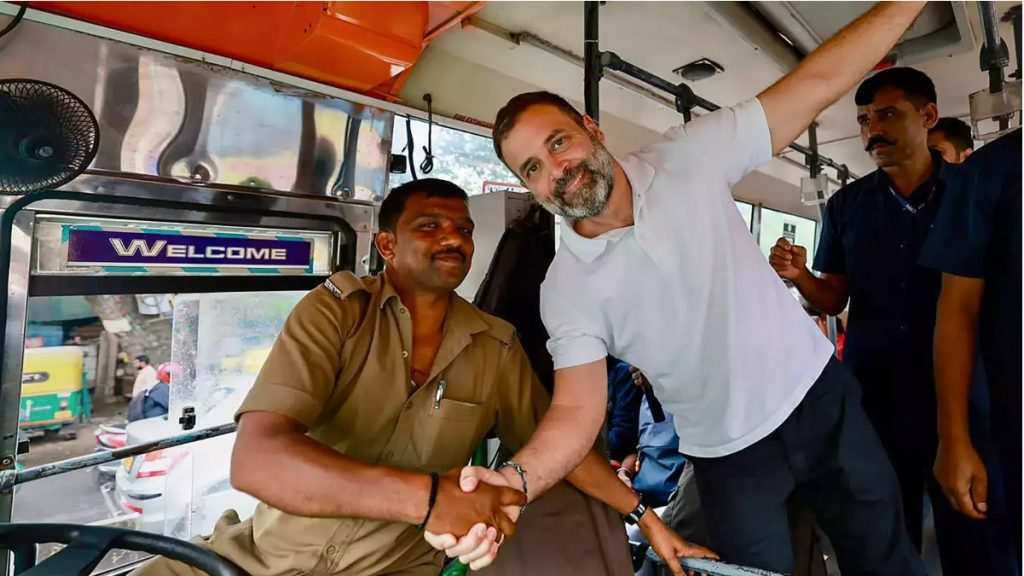The Constitution says there shall be no discrimination on the basis of caste, religion, gender or place of birth. This commitment to equality and non-discrimination is fundamental. Of course, it also provides for reverse discrimination in favour of Dalits and tribals in government jobs and educational positions, and reserves seats for them in elections.
The Constitution also permits reservations for socially and educationally backward classes. But these are supposed to be temporary exceptions to the norm of non-discrimination, with a sunset clause for abolition. However, a ‘haq’ or right has no sunset. Rahul Gandhi now wants to enshrine discrimination on the basis of caste and religion as a right.
The humongous demand for quotas is a fact of political life, which is why all parties have extended backward-caste status to dominant castes even though it is unconstitutional
Identity politics by another name
“Jitni abadi utna haq” is consonant with though, not equivalent to the Hindutva claim that a Hindu-majority country should give pride of place to Hindus, with those of other faiths occupying an inferior position. It runs dead counter to the ideal of a society based on caste-blind, religion-blind secularism. Instead of aiming to end social divisions, it sanctifies them as the bedrock of rights.
Rahul might claim that his slogan aims for social justice to guarantee quotas for various minorities, but he really aims for votes. His slogan permits the extension of reservations to Muslims, Christians and other religious groups, as well as a multitude of subcastes. He has in the past objected to the BJP accusing him of minorityism in favour of Muslims. If he is now accused of minorityism in favour of a thousand subcastes, he will probably grin.
“Jitni abadi utna haq” may guarantee quotas to every tiny subgroup and hence lay claim to representing social justice. But, by definition, a population-based guarantee will offer more to the majority than to minorities. This will sanctify religious majoritarianism and hurt the secular ideal.
The Constitution restricts quotas to historically oppressed classes. The Supreme Court has insisted on eliminating the creamy layer from quotas. But if population share is a ‘haq’ there will be no need to prove historical injustice or remove the creamy layers. It will be pure identity politics.
Deluge of quotas
Increasingly, people marry across castes and faiths. How will you categorise such couples or their children? Can such people choose their own identity.
Consider the Gandhi family itself. Indira Gandhi married a Parsi. Her sons, Rajiv and Sanjay, married a Christian and Sikh respectively. Yet Rahul claims to be a Shiva-worshiping Hindu. Can anybody claim any identity? Will that not open another Pandora’s box?
“Jitni abadi utna haq” runs dead counter to the ideal of a secular society. Instead of aiming to end social divisions, it sanctifies them as the bedrock of rights.
The Socio-Economic Caste Census (SECC) of 2011 aimed to identify people of different castes. Its details have never been released because the BJP deems it full of errors and ambiguities. Opposition parties claim the real reason is that the report will create demands for new quotas that the BJP dislikes.
The SECC showed that people use their gotra, caste and subcaste interchangeably. Phonetic similarities in caste names and spelling variations bloat the apparent number of castes. The SECC identified as many as 46 lakh castes, making categorisation impossible. In Maharashtra, for instance, 99% of the castes identified had less than 100 members, showing the extremely local nature of self-identification. The BJP claims that the SECC report had over 18 million errors, and so justified its refusal to make the details public.
The humongous demand for quotas is a fact of political life. This is why parties of all stripes have historically extended backward-caste status to dominant castes (Patels in Gujarat, Gujjars in Rajasthan, Jats in Haryana) even though they know this is unconstitutional. They find it politic to legislate unwarranted quotas and then leave it to the courts to strike these down as unconstitutional.
With “Jitni abadi utna haq”, Rahul is sticking to that script. He aims to show himself as the champion of subcastes, leaving it to the courts to deal with the practical impossibility of apportioning quotas to lakhs of subcastes.
In this, he is no more cynical than others. But he loses any claim to moral stature. His slogan is about vote-bank politics, not social justice. It may claim to be different from Hindutva but is no more than a variant of that same identity game in search of votes. Cynics in the Congress party may take my criticism as a compliment.


